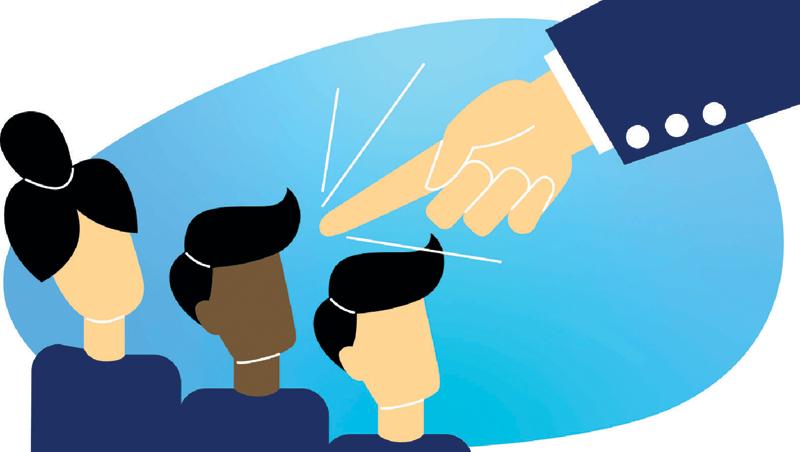
 In the new era of rapid changes and escalating cost pressures to run an enterprise the type of leadership has become increasingly important as the most effective driver behind successful change. In the increasingly turbulent and competitive environment, business firms operate today, a new type of “entrepreneurial” leader distinct from other behavioural forms of managerial leadership.
In the new era of rapid changes and escalating cost pressures to run an enterprise the type of leadership has become increasingly important as the most effective driver behind successful change. In the increasingly turbulent and competitive environment, business firms operate today, a new type of “entrepreneurial” leader distinct from other behavioural forms of managerial leadership.
Entrepreneurial leadership is the leadership that is based on the attitude that the leader is self-employed. Entrepreneurial leadership involves instilling the confidence to think, behave and act with entrepreneurship in the interests of fully realisng profitable growth opportunities for the benefit of all stakeholders involved.
Is there a difference between and entrepreneur and a leading senior manager of a corporate? Employees seek direction while entrepreneurs create a path. Employees tend to seek help when a problem arises at work. Entrepreneurs create the solutions that keep the organisation moving forward.
In an organisation, entrepreneurial independence when granted to senior leaders of a corporate provides space for action and trust, while independence in a traditional corporation implies responsibility and control imposed from the hierarchy.
Be it an entrepreneur or a business leader your expectations in a very senior position remain the same. Entrepreneurial speed demands agility, experimentation, adaptation, and rapid response to be first to market. Corporate experimentation comprises analysis, review, and sober consideration of facts, and willingness to sacrifice speed for thorough diligence.
Entrepreneurial paranoia - competitors are catching up to us - is overshadowed by an essential need to build corporate consensus and minimise perceived risk. Effective leaders provide a shared vision and inspire people to achieve more than they may ever have dreamt possible. People change when they are emotionally engaged and committed and take up greater challenges willingly. To inspire, you must both create resonance and move people with a compelling vision. You must embody what you ask of others, and be able to articulate a shared vision in a way that inspires others to act. You must offer a sense of common purpose beyond the day-to-day tasks, making work exciting and rewarding.
Creativity and synergy
“Creativity is a continuous activity for the entrepreneur, always seeing new ways of doing things with little concern for how difficult they might be or whether the resources are available. But the creativity in the entrepreneur is combined with the ability to innovate, to take the idea and make it work in practice.
This behaviour of seeing something through to the end and not being satisfied until all is accomplished is a central motivation for the entrepreneur. Indeed once the project is accomplished the entrepreneur seeks another ‘mountain to climb’ because for him or her creativity and innovation are habitual, something that he or she just has to keep on doing. In a senior role as an employee to grow the business you would have to think and act the same way.
We know that a company’s culture plays an important role in employee engagement, discretionary effort, teamwork and loyalty, and that an organisation’s culture impacts the company’s bottom line. We also know that the leadership of the company is the primary shaper of the culture. It’s important to understand which leadership styles and behaviors have the most impact on culture.
The background of people, group dynamics, operating environment, work condition, leadership style, structure, compensation policy/composition and social issues are factors that shape the ‘natural organisational culture’. Organisational culture, or corporate culture, comprises the attitudes, experiences, beliefs and values of an organisation.
It’s the specific collection of values and norms that are shared by people and groups in an organisation that control the way they think and behave that has an impact on the organisational performance.
Collective learning
In a typical business organisation too, it is necessary to shape and reshape the culture as teams evolve over time, to face two basic challenges in business operations: integrating individuals into an effective unit, and adapting effectively to the external environment to survive.
As groups find solutions to these problems over time, they engage in a kind of collective learning that creates the set of shared assumptions and beliefs that we call “culture”. For an entrepreneurial organisation to nurture and support its style and character of decision making and execution of strategy a lean structure without non-value adding or non-essential activities, unimportant processes, overlaps or duplication is necessary to achieve the right level of productivity and cost efficiency.
Generally in a growing economy we see more entrepreneurs and entrepreneurial organisations than the other types of organisations, globally.
Entrepreneur is a mind-set which can be applied in any scenario in any type of organisation.
